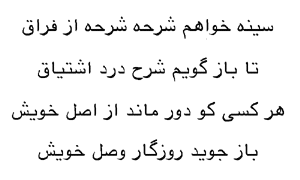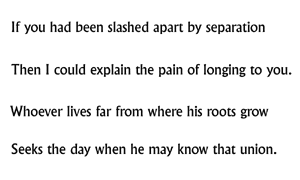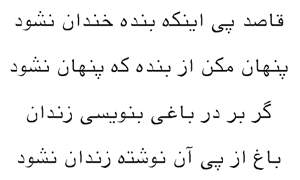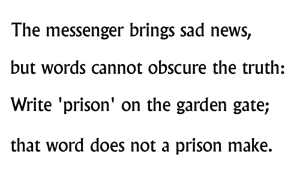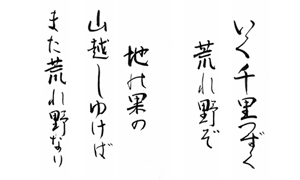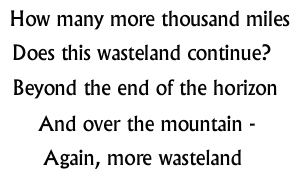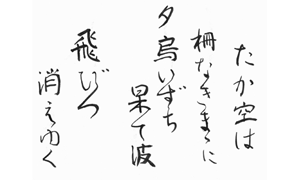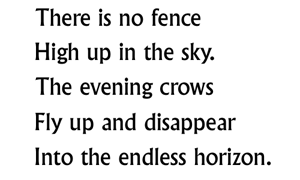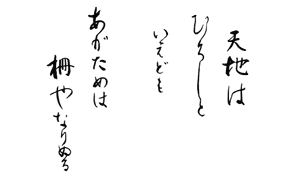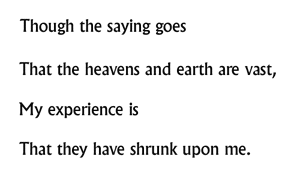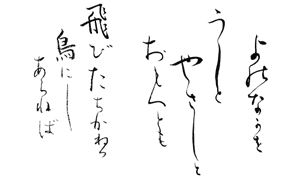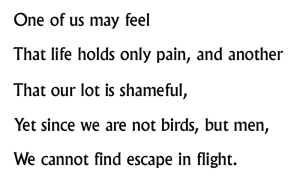| Main Page Sponsors Implementation Exhibits Demos/Images Poetry Credits Articles Web Links |
Beyond Manzanar: PoetryPoetry is one of the highest forms of art in both Iranian and Japanese culture. In Japanese culture for instance, which puts importance on self-restraint of emotions in public, it is one of the few vehicles for people to express their innermost feelings. In Beyond Manzanar we have worked poetry into the 3D space as a quiet but pogniant narrative voice. Zara has written an original poem as the resolution for Beyond Manzanar, and created new translations of poems from the famous Persian poet Rumi. Midori Kono Thiel has created new calligraphy for poems from Sojin Takei, written during the Internment, and for ancient poems from the Manyoshu. "Mandala for Manzanar" by Zara Houshmand |
|
| Beyond Manzanar ends with the following poem, seen against the mountain panorama of Manzanar. | |
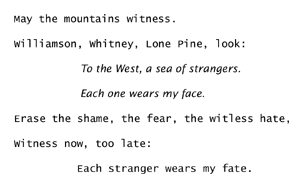 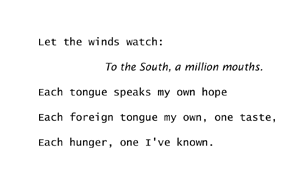 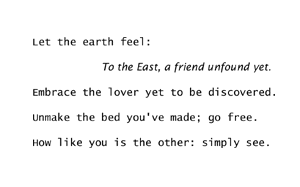 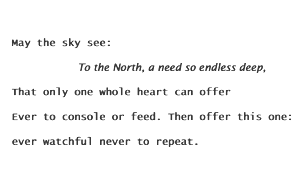
|
|
